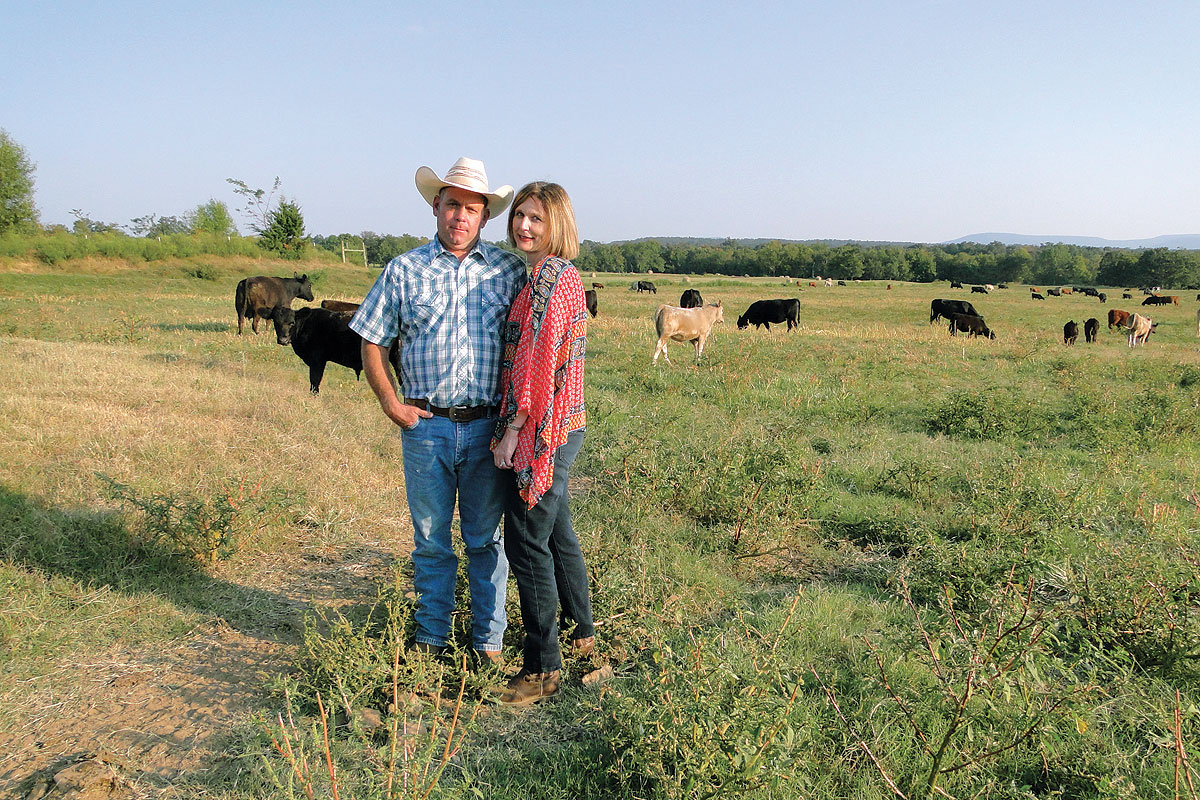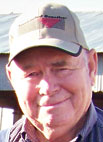
Cattle, pigs, ducks, turkeys, laying hens, meat chickens, calves and horses are found at the two locations of Falling Sky Farm. Owned and operated by Andrea Todt and Cody Hopkins, on 40 acres near Marshall, Ark., they have seven feeder pigs, 600 ducks and 150 laying hens. On their 80 acres near Chimes, Ark., they’re raising turkeys, 8,000 meat chickens, and run 29 head of stocker calves.
“We were young farmers,” Cody said, “with very little capital, and no land. We wanted to make our living at farming, but without going into serious debt. Our method of farming started as an experiment, we wanted to be successful, but didn’t know a lot about farming. We found mentors across the country who were doing the type of farming we had in mind. A neighbor of ours had some idle land that hadn’t been used in 20 years or so, and we asked if we could fertilize her pasture. What we wanted to do was run pastured broilers on her land. That’s how we first started in 2007, with 50 chickens.”
Since then, to meet the growing demand for healthier meats, Cody and Andrea expanded to include other animals. They work their diversified livestock farms with the commitment of providing healthy and humanely-produced foods that are environmentally friendly. They do not use growth hormones, antibiotics, chemical fertilizers, pesticides or herbicides. The goal of their enterprise is to return more to the land than it takes away. Fields are healthier because the chickens, ducks and turkeys deposit nutrients then work them into the soil.
“Our broiler chickens are raised in floorless tractors with room to move and scratch,” Andrea said. “They’re relocated daily to fresh pasture, with access to fresh water. Their diet is grass, bugs and a hormone- and antibiotic-free organic ration of corn, GMO-free soybeans, alfalfa oats, calcium, fishmeal and a mineral mix. The laying hens, their mobile houses and electrical netting, are also moved around the pasture. In addition to a diet of bugs and grass, they’re fed a similar organic ration as the meat chickens, with added calcium for strong shells.”
Their cattle are grass fed, no supplemental grain or growth hormones, and moved twice daily to a fresh paddock to insure re-growth time for the pastures. Fresh water and sea kelp for minerals are available in addition to grass, producing marbled beef rich in flavor and low in unhealthy fat. Business has grown to the point they’ve employed several people. Rowdy Hopkins, Cody’s brother, has worked at the Chimes farm since September 2009. In the summer of 2009 ducks were added, when Gabe Levin began as an intern from Hendricks College. That project worked out so good they’ve continued raising ducks. Brian Bankston and his fiancée Ann Marie work as apprentices for the learning experience. Zack and Malinda Folkers are part-time employees.
“We do some business locally,” Cody said, “but most sales are at farmers’ markets and restaurants in Central Arkansas. Poultry is raised, butchered, dressed and packaged on-sight under a USDA exemption and goes directly to the customers from the farm. We have a high volume of online sales. We go to the North Little Rock Farmers’ Market about every Saturday, which runs from early spring to late fall. This is a unique market called a Certified Arkansas Farmers’ Market, which means every farmer there only sells stuff they’ve grown themselves.”
Cody is on the Certified Arkansas Farmers’ Market Board of Directors. In 2009 Cody and Andrea received the Wave of the Future Award from the Glynwood Institute, recognizing them for their innovation and leadership in sustainable agriculture. They were named Searcy County Farm Family of the Year, 2010.
“We love this lifestyle and want to continue farming. We’re always working to offer our customers more options,” Andrea said. “We’ve started something new this year, a meat-share program, a way of selling in bulk to get the cost lower for our customers.”
Cody and Andrea offer consulting and are willing to share valuable ideas and techniques. “We’d love to see other young people farming like us,” Cody stated, “with the same goal of promoting sustainable farming.”







